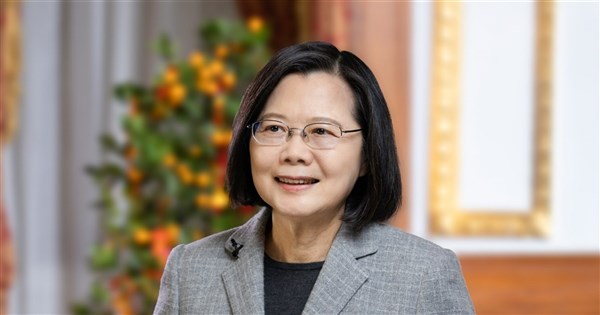TAIPEI (Taiwan News) — A disagreement between the Philippines and China over Taiwan’s recent elections has some analysts concerned Beijing could step up actions against Taipei, in addition to affecting diplomacy in other Southeast Asian countries.
Last week after Philippine President Ferdinand Marcos Jr. publicly congratulated President-elect Lai Ching-te (賴清德) on his election victory, it quickly drew an angry response from China, according to Nikkei Asia. Chinese Foreign Ministry spokesperson Mao Ning (毛寧) said Marcos’ message was a “serious violation” of the “One China” principle.
“(It is) a serious breach of the political commitments made by the Philippines to the Chinese side, and a gross interference in China’s internal affairs,” Nikkei Asia cited Mao as saying.
This caused Philippine Defense Secretary Gilberto Teodoro on Jan. 17 to say that Mao’s comments “stooped to such low and gutter level talk.” Teodoro added there should be no surprise “that an agent of a Party and system of government incompatible with our way of life and who routinely spouts State-sanctioned propaganda and disinformation would go that far and that low.”
Then on Jan. 18, the two countries agreed to improve maritime communication and properly manage conflicts and differences through friendly talks on issues concerning the South China Sea, according to Reuters.
However, analysts told Nikkei Asia that Beijing will likely step up its military posturing against Taiwan, which could also have economic and security consequences for Southeast Asia.
China could increase its military presence across the Taiwan Strait in the lead-up to Lai’s inauguration in May, Ivy Kwek, a Taipei-based China fellow at the International Crisis Group, told Nikkei Asia. “Any contingency in the Taiwan Strait will have a big impact on Southeast Asia, given the geographical proximity and Southeast Asia’s close economic ties with both China and Taiwan,” Kwek said.
Other analysts said that the Philippines is looking to reorient its defense strategy despite the announcement to boost communication between Manila and Beijing. “While such meetings are in the interest of the Philippines in terms of keeping lines of communication open, Manila now knows that it cannot trust Beijing’s statements at face value, given that it has a notorious track record of saying one thing but doing another,” Nikkei Asia cited Don McLain Gill, an analyst and lecturer at De La Salle University in Manila, as saying.
Singapore was also criticized by China for congratulating Lai on his election win, while Vietnam, Cambodia, and Indonesia issued statements that avoided angering Beijing, according to Nikkei Asia.
“Southeast Asian countries do not want to give China the impression that there is any deviation from the ‘One China’ policy or principle,” Collin Koh, senior fellow at the Institute of Defence and Strategic Studies at Singapore’s S. Rajaratnam School of International Studies, told Nikkei Asia.
Meanwhile, military buildups in Asia by the U.S. and China could also affect Indonesia. If the U.S. and its allies were to use Indonesian waters to transit from the Indian Ocean to the Pacific Ocean from time to time, Beijing could see that as a direct challenge from Indonesia, Koh said. Koh noted that the last thing Southeast Asia wants is a conflict in Taiwan.



